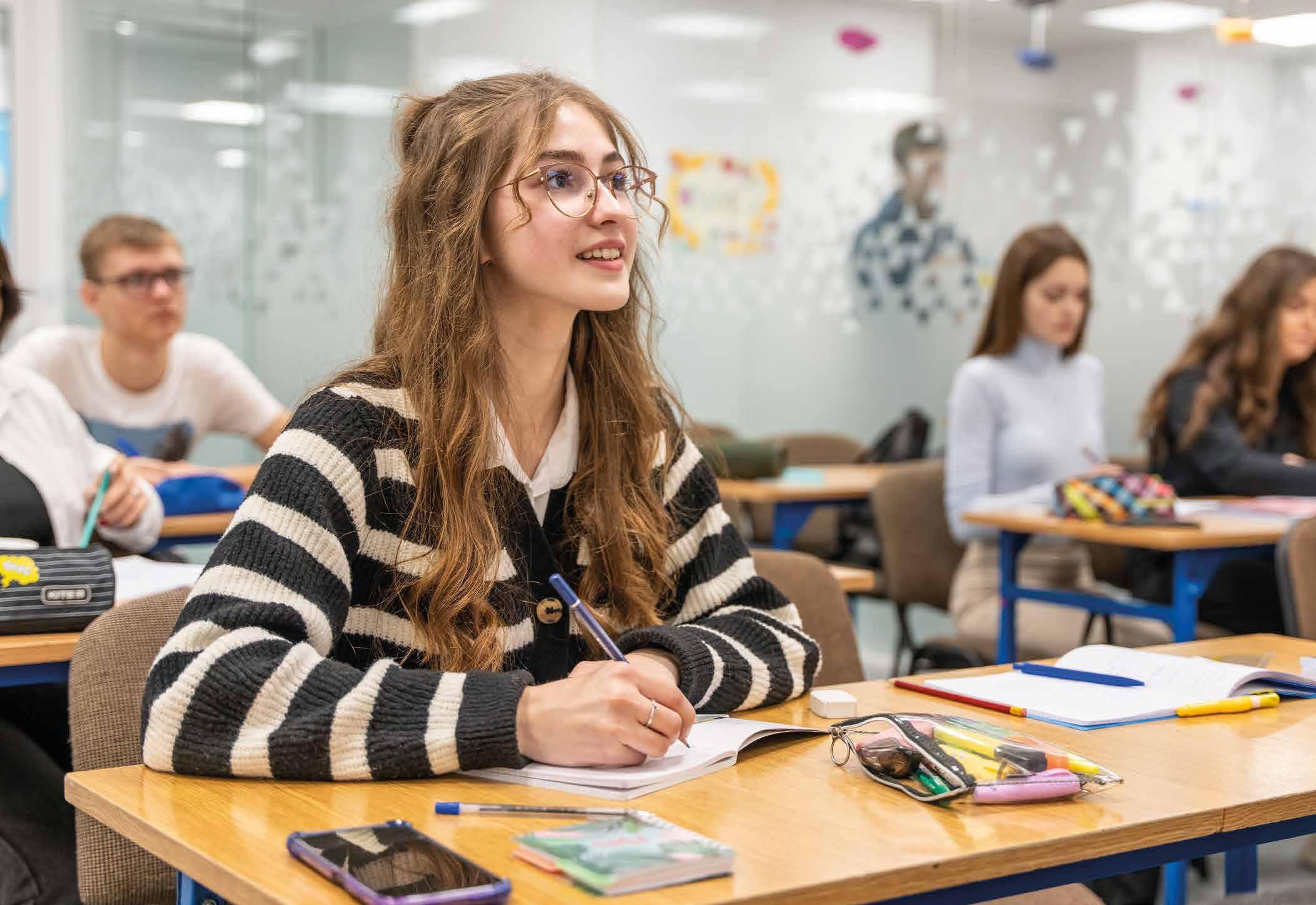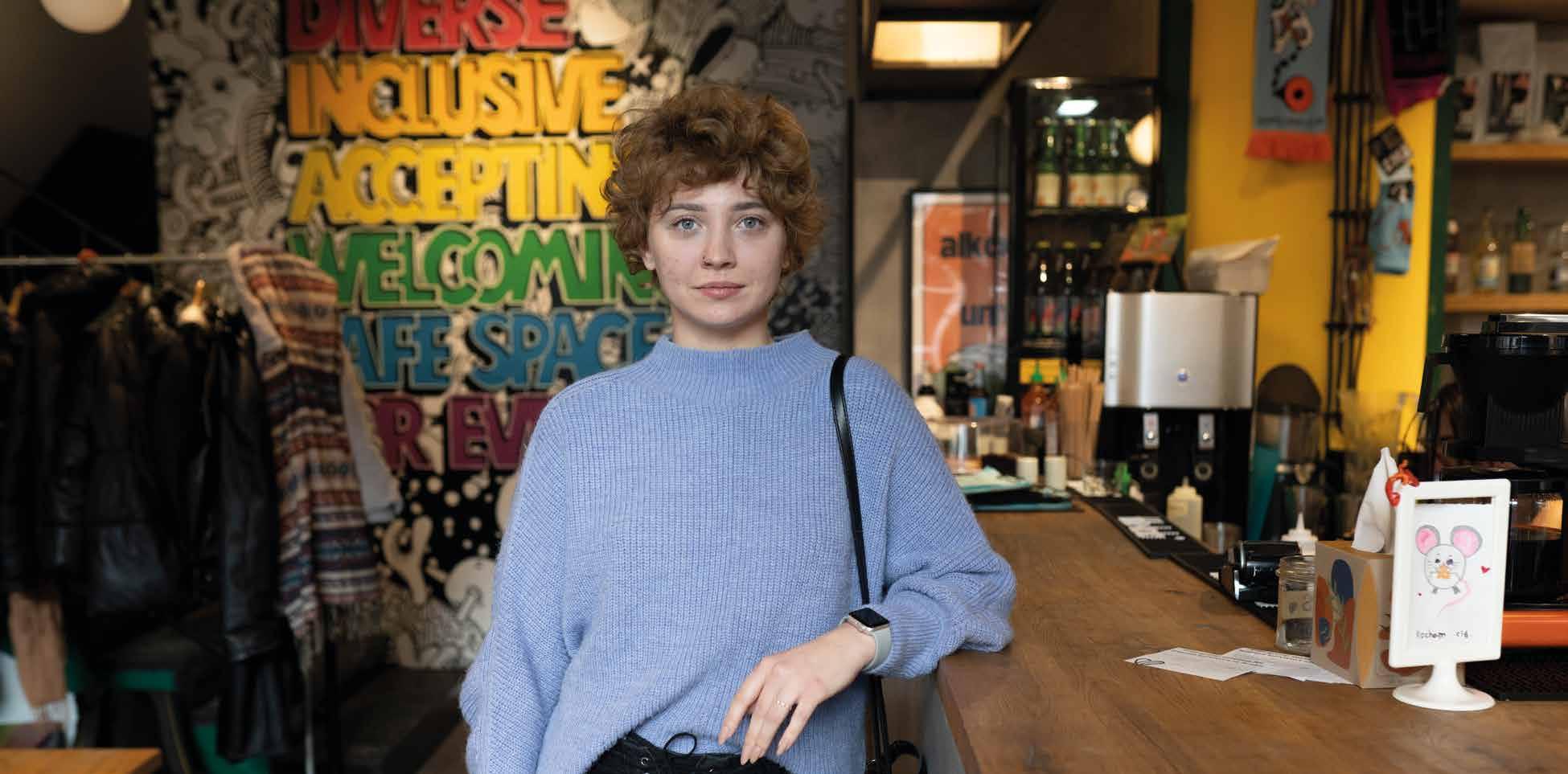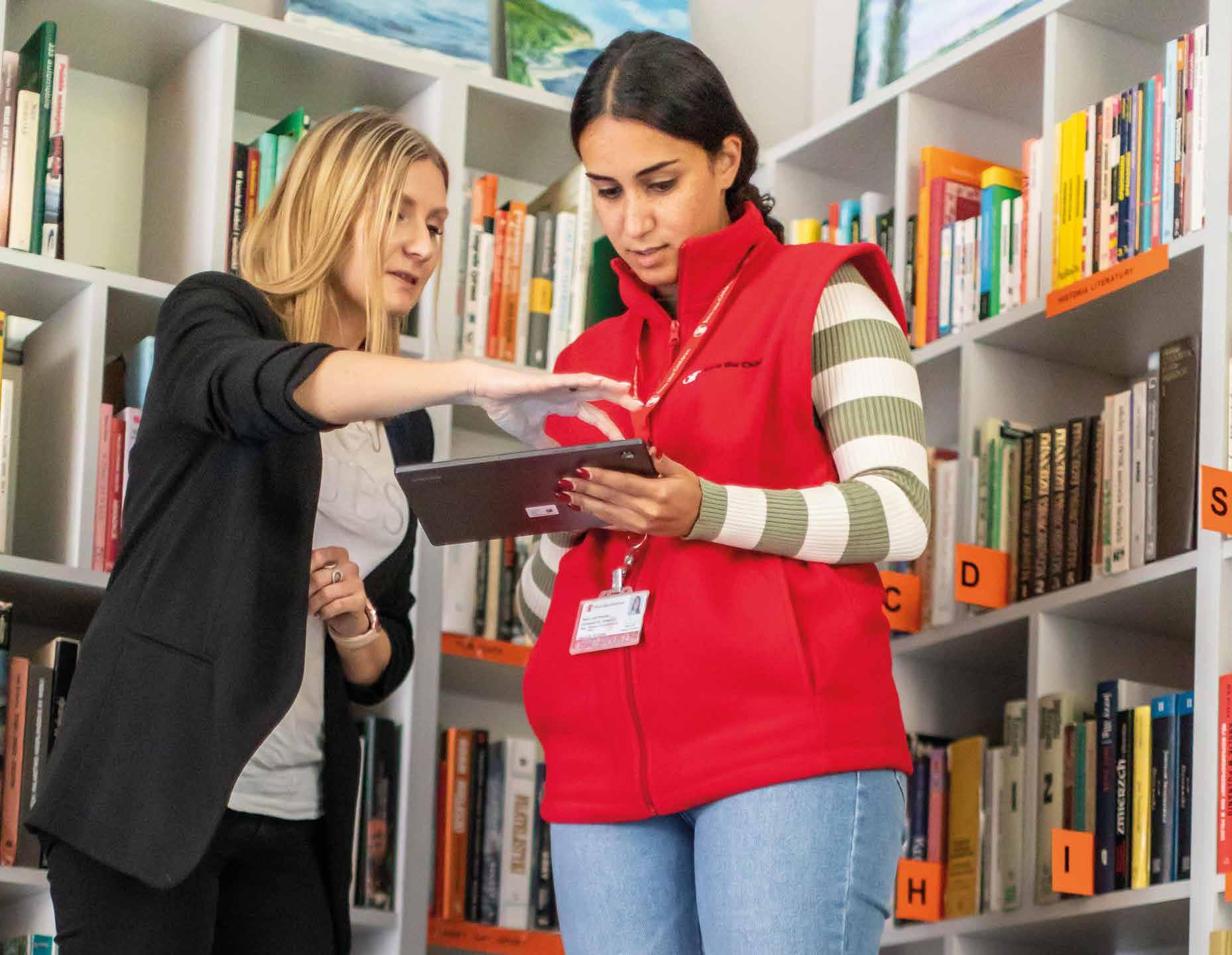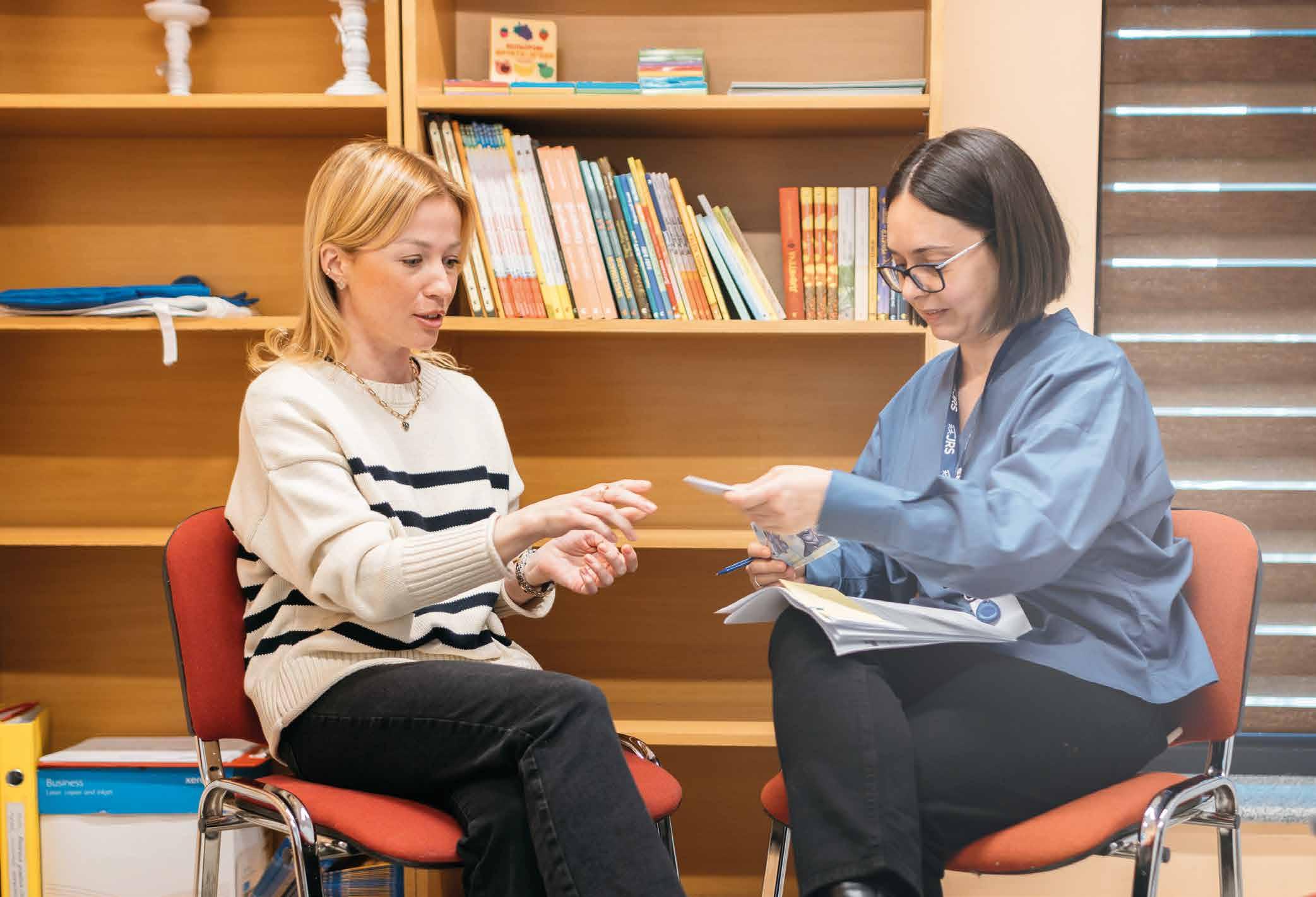
2 minute read
HOW WE HELPED: EDUCATION YEVHENIIA*
As the conflict in Ukraine has continued, the need to integrate and support children from Ukraine into the Polish education system has become more pressing. This is consistent with the Polish government’s emphasis on school integration rather than the creation of a parallel Ukrainian school system within Poland. However, prior to the escalation of the conflict in Ukraine, Polish teachers had very little experience with multicultural classrooms or with children who have experienced distress.

Based on research conducted by its partner organisation, one DEC member charity developed a model for educational integration that helps schools identify challenges and plan measures to facilitate teachers’ work and promote students’ learning.
13,600 children were supported with education through language courses and educational trips
2,800 people received legal assistance, information or advice
Building a hopeful future
Coming to Poland was a difficult experience for Timea. In Ukraine, Timea – who has never had any formal education – supported herself, her husband and her two children by cleaning streets and collecting scrap metal. When she fled to Poland in August 2022, she had never travelled abroad before, and she feared for her own and her children’s future.
Upon arrival in Warsaw, Timea received a range of support from a DEC partner organisation, including food, hygiene products, medicine and clothes. She quickly began to organise her life anew, setting up a small kitchen at the collective centre so she could prepare her own meals, and enrolling her children in Polish language classes. She also began to participate in activities at the centre such as psychosocial workshops and parenting skills sessions.
Her children began to attend Polish lessons and to take part in sports and cultural events, and her 13-year-old daughter Elizabeta – who, like generations of people from her community, had never attended school before agreed to enrol in school. Thanks to the ‘springboard’ provided to her family, Timea and her children are now able to look forward with hope to a better chapter in life.

The DEC member charity also carried out teacher training and capacity strengthening of partner organisations so that they can support teachers with providing traumasensitive classroom environments and learning. The project consulted with children, adolescents, youth and their caregivers on ways to improve access to mental health support, and helped set up child advocacy centres where children can access one-to-one and group support and a range of therapeutic approaches, such as art therapy and cognitive behavioural therapy.
Another member charity supported 17,300 children and 825 adults through its education programme during the reporting period, including providing training for teachers, psychologists and other staff working with children and with refugees, providing child-friendly safe spaces and equipment for online learning (including support with learning the Polish language), and promoting integration through the establishment of Digital Learning Centres, accessible to both refugees and host populations in 50 libraries across Poland.











